
DS 9 E-Tense Review

Introduction
When you think of executive saloons, the German brands are always the ones to which you turn first. The BMW 5 Series, Audi A6 and Mercedes-Benz E-Class have made this segment their own with their luxury, style and technology.
And rightly so; each one is brilliant in its own way. But that makes you wonder why anyone bothers to compete with such dominant, desirable models.
French premium brand DS seems to have had much the same idea, and rather than playing the Germans at their own game, it has decided to offer something a little bit different. The DS 9 is a luxurious saloon, but it comes with all the comfort, style and panache you expect from a left-field French limousine.
Soon to be available solely in E-Tense plug-in hybrid forms, it’s very different to the established German models, but is that a good thing?
Select's rating score* - 3.2 / 5
At a Glance
In many ways, the DS 9 ticks most of the premium boxes. There’s a big grille, plenty of chrome and some modern LED lights, just like you might find on an Audi or BMW.
But DS has draped those details over a more curvaceous, flowing form that’s clearly designed for comfort and looks, rather than performance.
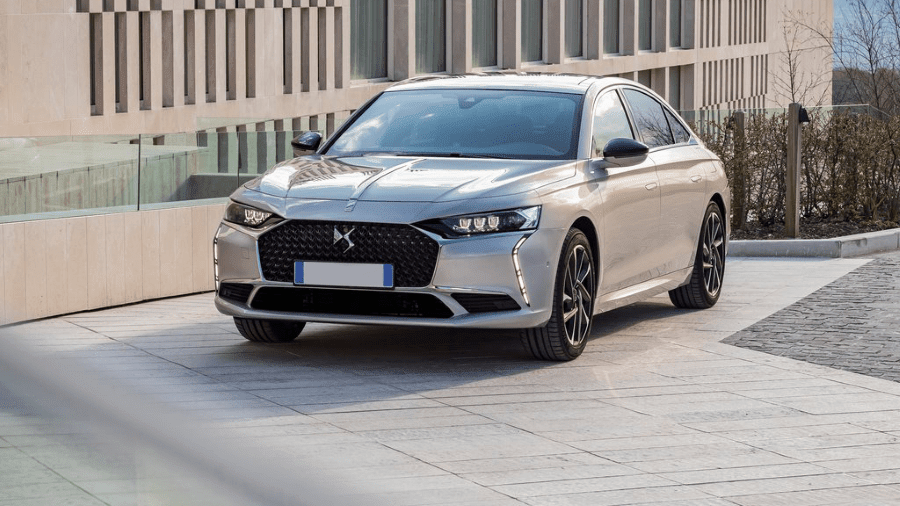
The interior is similarly styled, with wide expanses of plush leather or, in the case of ‘basic’ Performance Line+ models, Alcantara. Big screens dominate proceedings and almost all the buttons have gone, except for a few on the centre console and steering wheel.
Ergonomically it’s far from ideal, but it’s immensely comfortable and the quality is better than you might expect.
UK customers originally had a choice of two engines: a 225hp petrol and a 225hp E-Tense plug-in hybrid, but those two are set to be replaced by the E-Tense 250 plug-in hybrid and the E-Tense 4x4 360 plug-in hybrid, with 250 and 360hp respectively. Both are powerful, but they really specialise in offering refinement and economy in equal measure.
Key Features
The DS 9 exists to offer a comfortable alternative to the German elite, and it’s helped in that respect by its cabin, which is finished in some exquisite materials and furnished with some incredibly comfortable seats.
The DS brand may be a Citroen spin-off, and some of the switchgear might be straight from the Peugeot-Citroen parts bin, but in terms of upholstery and design it’s every inch the premium interior. It’s quiet, comfortable and tactile.
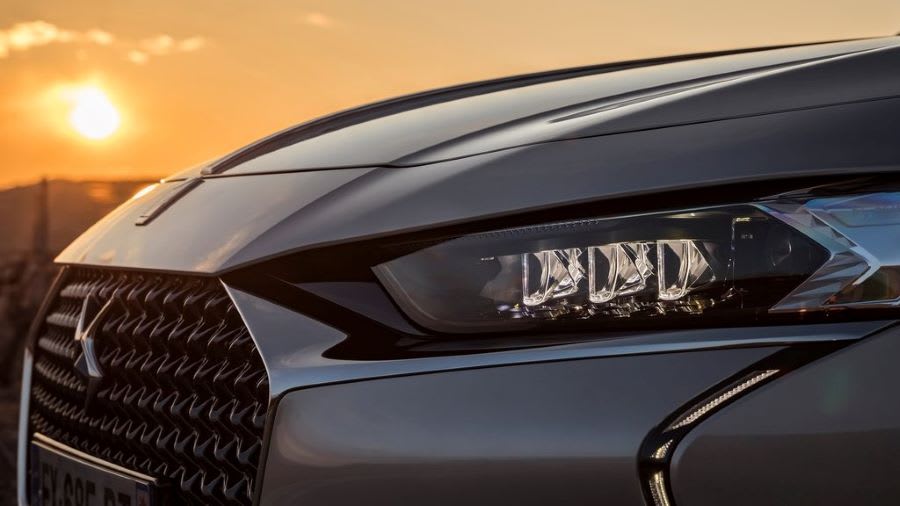
Tech is another key pillar of the DS experience, with physical buttons largely made redundant by a huge central touchscreen. But that isn’t the coolest technological gizmo offered in the DS9 range. Nope, that’s the night vision camera.
Yes, this technology has already been seen on the DS 7 Crossback and the Peugeot 508, but a similar system is also fitted to Rolls-Royces. It’s a bit of a gimmick – customers probably won’t use it very much and it’s only available as an option – but it works very well indeed and it can be a useful feature on dark nights.
Range & Batteries
Which battery you get in the DS 9 really depends on which version you choose.
The soon-to-be-basic E-Tense 250 comes with a 15.6kWh* battery that’s good for 38 miles of zero-emission motoring before the petrol engine kicks in. Whereas the more powerful E-Tense 360 4x4 comes with a smaller 11.9kWh* battery that provides a 29-mile range.
*Head here for kWh and kW explained!
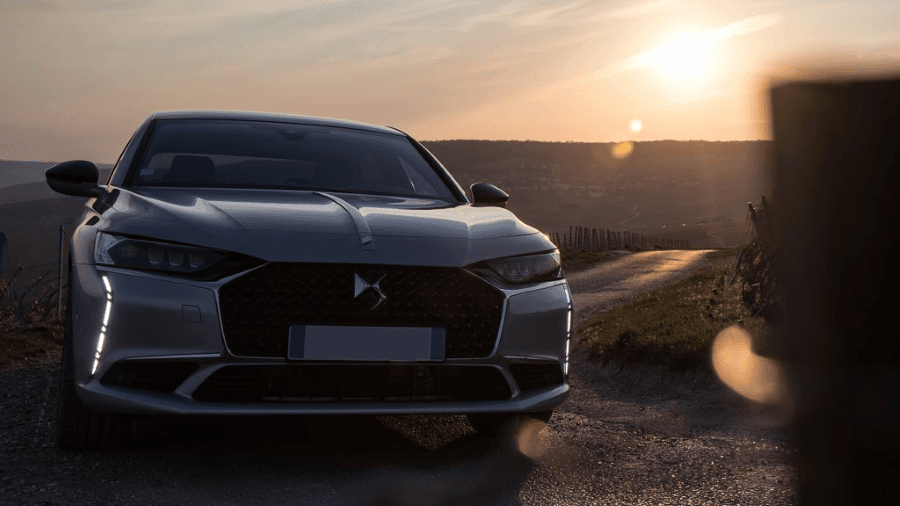
Our test suggested such a range would be more or less achievable in the real world, although you’d have to drive very efficiently to manage it. However, on a mixture of roads, the range becomes a bit meaningless.
With the regenerative braking system topping the batteries up, drivers who use the electrical power at the most efficient moments will find the car running on battery power more than they might expect.
Performance & Drive
The DS 9 engine range is a little confusing, because the car was originally launched with a choice of two powertrains and both are set to be replaced. When the car was revealed, there was a 225hp, 1.6-litre petrol engine called the PureTech 225 and a 225hp plug-in hybrid called the E-Tense 225.
That was simple enough, but slow uptake of the petrol engine has given DS reason to axe it, trimming it from the foot of the DS 9 ladder.
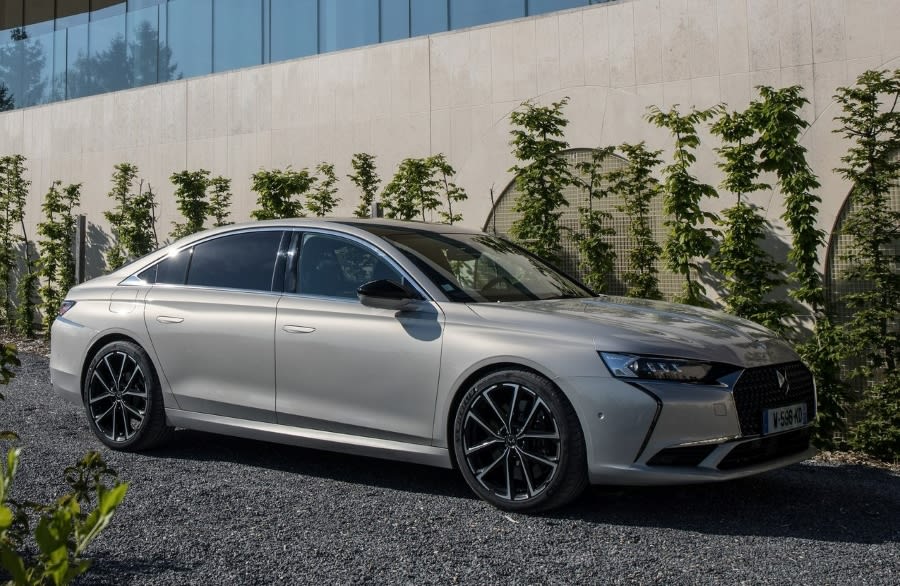
At the same time, DS has decided to tweak the E-Tense 225, swapping it for the more powerful E-Tense 250 with, you guessed it, 250hp. It also gets better battery tech for greater range.
The E-Tense 250, therefore, will represent the new entry-level car. Like the E-Tense 225, it's powered by a 1.6-litre, four-cylinder petrol engine that works in unison with a lithium-ion battery and an electric motor.
With both propulsion systems driving the front wheels through a six-speed automatic gearbox, it's capable of 0-62mph in a respectable 8.1 seconds.
Above that is the E-Tense 360 4x4, which essentially uses the E-Tense 250 powertrain (albeit with a smaller battery) and adds another electric motor to the mix. Positioned on the rear axle, the system provides the DS 9 with all-wheel drive and ups the power to 360hp, allowing a much faster 0-62mph time of 5.6 seconds.
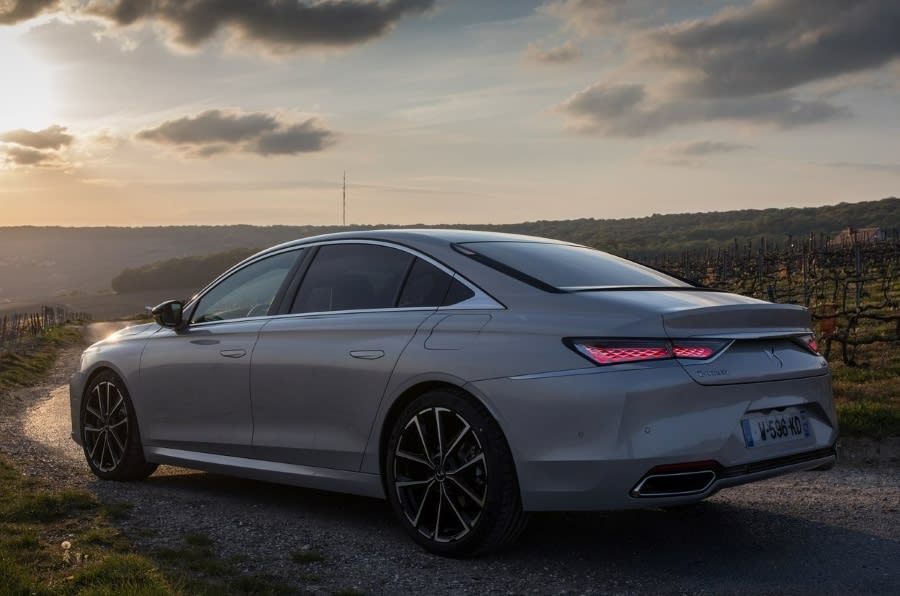
And the E-Tense 360 4x4 isn’t just faster in a straight line. The more powerful model also comes with tuned suspension and uprated brakes, giving it a sportier edge. But even with those additions, comfort is still very much at the forefront of the 360’s design.
It handles slightly more keenly and it’s certainly faster than the E-Tense 250, but it doesn’t really reward you for flinging it through corners.
It’s more at home on a motorway, where the standard-fit Active Scan suspension (optional on the E-Tense 250) can observe the road ahead and tune the dampers accordingly. The system doesn’t work perfectly, but the DS 9 remains more comfortable than many of its rivals.
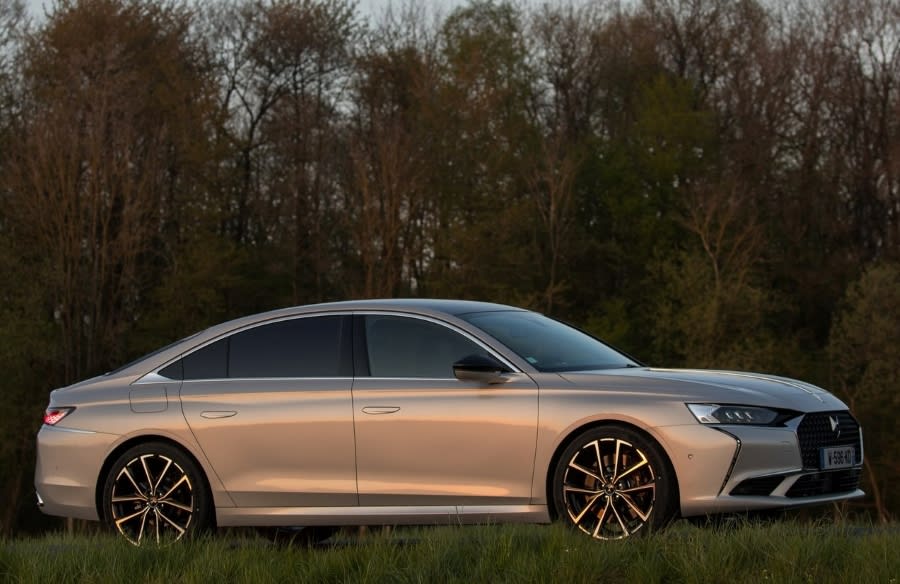
Charging
Once the battery is depleted, drivers can use the engine to charge or plug into a 7.4kW system that allows you to charge up from a domestic ‘wallbox’ in two hours and 23 minutes.
Find out more about charging hybrid and electric cars here!
Running Costs & Emissions
The official economy figures suggest the DS 9 will be incredibly cheap to run whether you pick the E-Tense 250 or the E-Tense 360 4x4. Both will return outrageous, three-figure mpg numbers, but you’ll need a very specific lifestyle to achieve that.
If you can charge regularly and most of your journeys are short, the E-Tense 250 might get somewhere near the 257mpg figure DS claims on the official economy test. If you mostly do long journeys, you’ll be better off with a diesel E-Class, even if the data suggests otherwise.
If you’re a company car driver, however, you’ll want the plug-in hybrid system. The E-Tense 250 model, which makes the most sense from a running costs point of view, emits just 26g of carbon dioxide per kilometre, which keeps the company car tax bills down.
Interior & Technology
The interior is a big part of the DS 9’s appeal. Perhaps understanding that it can’t compete with the German brands when it comes to quality, DS has chosen to opt for opulence instead. The cabin is clean and mostly button-free, and it’s lined with a selection of premium materials.
Top-of-the-range Rivoli+ cars get soft leather with the option of clever ‘pearl’ stitching, while basic Performance Line+ models get soft Alcantara and black leather.
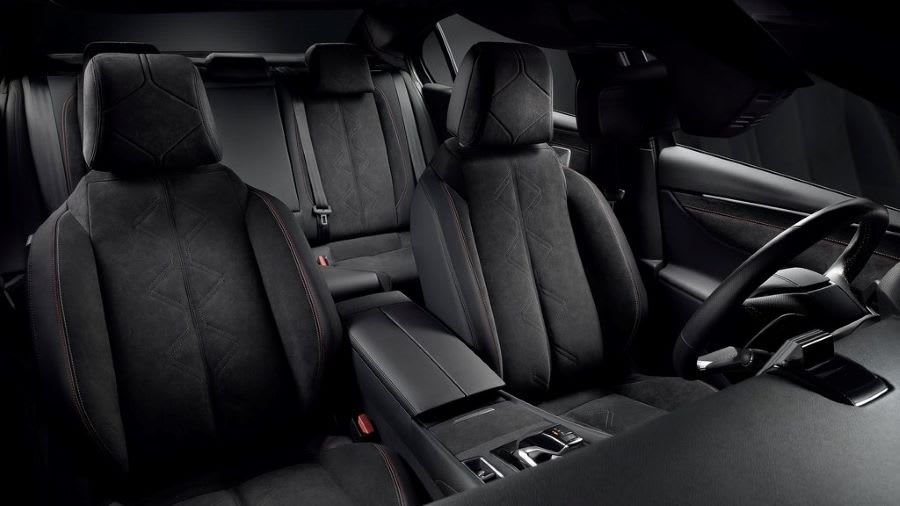
A massive central touchscreen dominates the cabin, housing most of the car’s vital functions, from climate control to satellite navigation and even information about the hybrid system.
The screen looks decent enough, but it doesn’t respond as sharply as you might hope and some of the functions feel a bit clumsy. Add in the dated navigation system and it doesn’t stack up well against more modern Mercedes-Benz and BMW systems.
The digital instrument display is more of a success, with a configurable screen that’s easy to use and easy to read. Controlled via buttons on the steering wheel, it’s still no match for the Virtual Cockpit, but it isn’t bad at all.
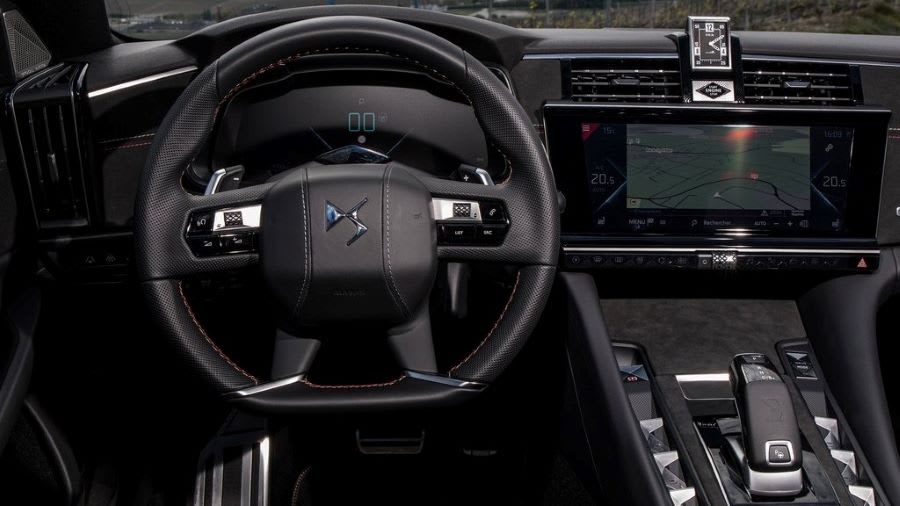
But while you might not expect a French car to excel in terms of technology, the DS 9 does fare well when it comes to neat features. The optional night vision system is a bit of a gimmick, but it’s a cool one, and the same is true of the BRM clock that rotates out of the dashboard when you start the car. Pointless, but pretty cool nonetheless.
Even more of a surprise, however, might well be the build quality. Of course, nobody is going to confuse the DS 9 with an Audi A6 or a BMW 5 Series when it comes to material and construction quality, but the DS 9 isn’t that far behind.
Most of the buttons – the ones that exist – feel quite robust and the panels all fit together nicely. There are some hard plastics lower down, betraying DS’s relationship with Peugeot and Citroen, but it’s largely quite good. For a French saloon.
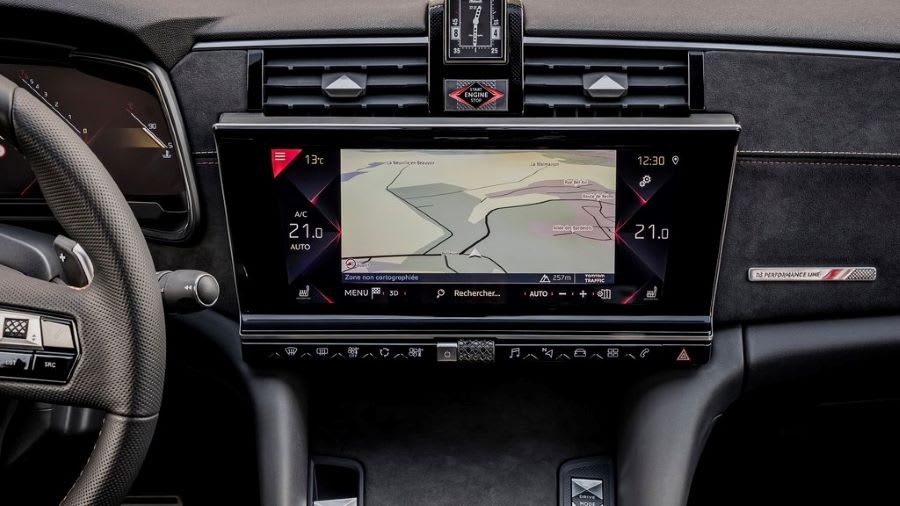
Practicality & Boot Space
The DS 9’s cabin is pretty roomy, but then you’d expect a car of this size to provide adequate interior space. Headroom is reasonable in the front, while rear space is pretty standard for cars in this class, meaning the DS is never outclassed, but nor does it lead the field.
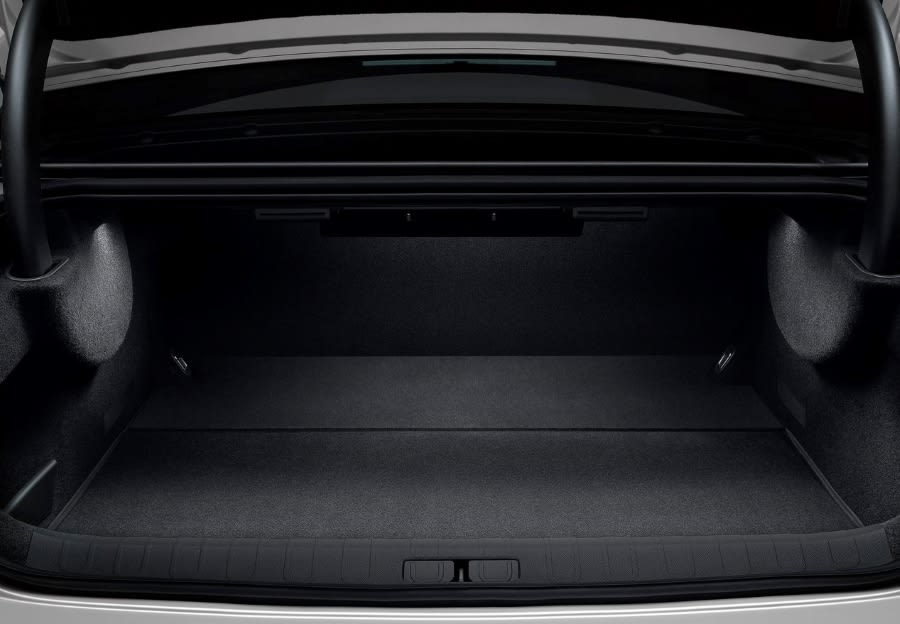
More importantly, however, the DS 9 has a relatively big boot. The 510-litre space doesn’t sound that special alongside the BMWs and Audis of this world, but that’s only half the story.
Ordinarily, plug-in hybrids would sacrifice some of their boot space to accommodate the batteries, but the DS 9 manages to offer that space even with a hybrid system. And it’s a good amount of space, offering plenty of room for suitcases or holiday luggage.
Safety
The DS 9 has not yet been tested by Euro NCAP, and DS itself admits the executive saloon probably never will go through the crash test – it simply isn’t expected to achieve enough registrations. It would have been easy, therefore, for DS to neglect safety considerations almost altogether, but the brand says it's confident the DS 9 would score well in a crash test scenario.
To help its cause, there’s a fleet of standard safety features, including autonomous emergency braking and lane departure warning. Cruise control features, too, and the two systems can even work in tandem to provide a motorway assistance system that helps to keep the car in its lane and maintain a safe distance to the car in front.
It won’t do anything clever, such as changing lane or turning off when the sat-nav asks it to, but it’s a good back-up system to have watching over you on a long journey.
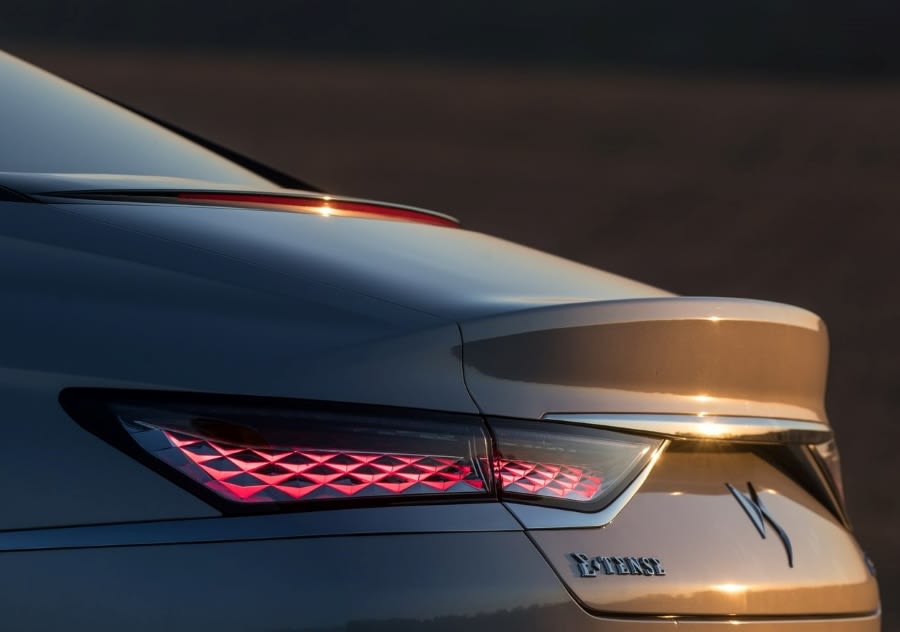
Options
To keep things simple, the DS 9 range comprises two models: the basic Performance Line+ and the more luxurious Rivoli+. For a car that isn’t supposed to be sporty at all, the Performance Line+ comes with plenty of motorsport-inspired features, including microsuede upholstery and a perforated leather steering wheel. It also comes with 19-inch machined alloy wheels that feature red centre caps.
Inside, the Performance Line+ features all the kit you really need, including satellite navigation, LED headlights and climate control. It gets electrically adjustable and heated front seats, too, not to mention a reversing camera and parking sensors at the front and rear.
The Rivoli+, however, is the more desirable option, focusing on luxury and comfort with its leather upholstery and ambient lighting. It comes with the Active Scan suspension as standard, too, and you get wireless phone charging, while the front seats are both heated and ventilated.
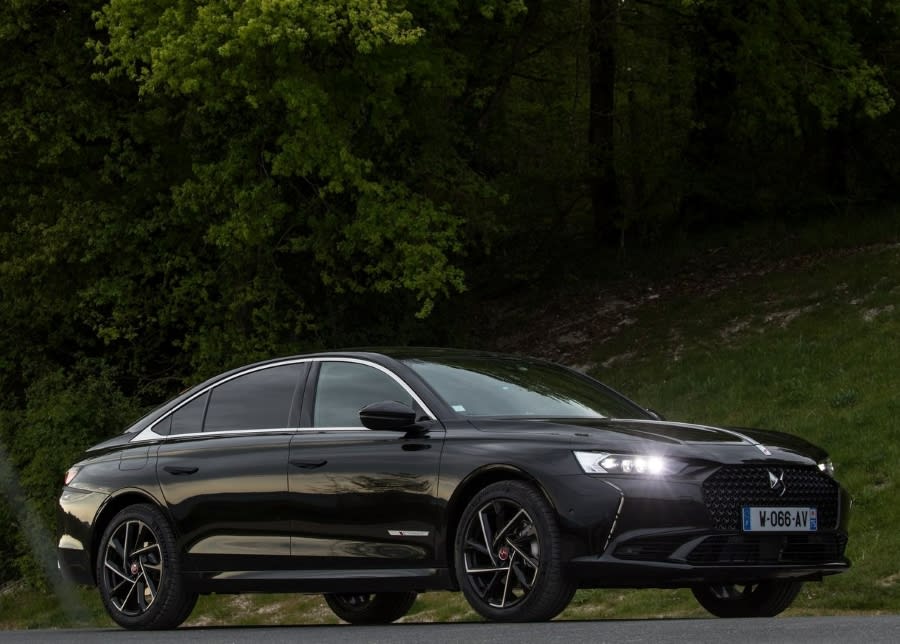
They’ll even massage you as you drive. And to top it all off, the Performance Line+’s reversing camera is replaced with a 360-degree camera that gives you a view of the car and its surroundings.
Options include goodies such as night vision, extended air conditioning for the back seats and an electric tailgate. You can also choose an impressive Focal hi-fi system if you want a treat for your ears, while the optional sunroof draws a little more light into the cabin. Beyond that, it’s a choice of fairly monochrome paint colours and a slightly more vibrant selection of interior choices.
Rival Cars
The DS 9 is up against some pretty serious contenders in the executive saloon market, which is dominated by the big German brands. To choose a DS 9, you first have to discount the class-leading BMW 5 Series, the supremely comfortable Mercedes-Benz E-Class and the perennially popular Audi A6.
Each of those three cars has its own strong suit – the BMW is great to drive, the Mercedes rides beautifully and the Audi is crammed with technology – but together they have a stranglehold on the market.
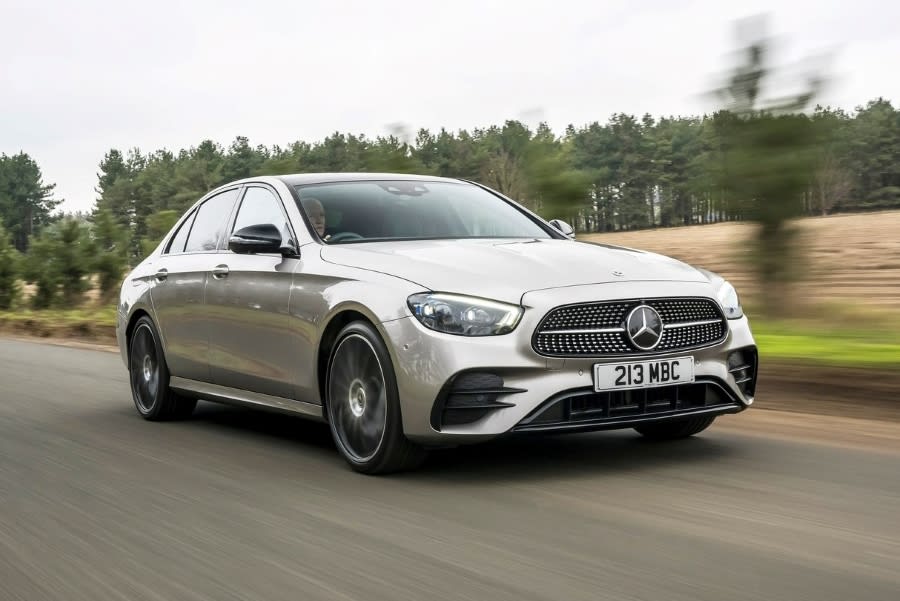
DS, however, claims it isn’t competing with those three. The DS 9 is supposed to be a car for those who had already decided they want something more left-field. In the past, those customers have been catered for with the stylish Volvo S90, the hybrid-powered Lexus ES and the sporty Jaguar XF.
Which leaves the DS 9 up against it. All three of those cars are brilliant in their own right, while they too face competition from the Genesis G80 saloon – another surprisingly competent newcomer in this competitive segment.
The DS may have plug-in hybrid power and distinctive design on its side, but it needs more than just that to become a class leader.
Verdict & Next Steps
As you might expect, it would be difficult to justify choosing a DS 9 over a Mercedes-Benz E-Class or a BMW 5 Series.
But if you’ve already discounted those two cars, as well as the Audi A6 – be it on the grounds of predictability, popularity or anything else – then the DS comes into play.
Compared with rivals such as the Volvo S90 and Lexus ES, the DS 9 has genuine appeal, and the French company can now claim to be a real premium contender.
Where to next?
View our latest DS 9 E-Tense Leasing Deal - from just £589.49 per month inc VAT**
Looking for a great leasing deal? Check out our incredible range of Special Offers
New saloon car? Read our latest Car Reviews and find the right model for you
Want to know more about leasing? Take a look at our comprehensive Leasing Guides
Interested in everything motoring? Why not catch up on all the latest Car Leasing News.
*Score based on Select’s unique meta score analysis, taking into account the UK’s top five leading independent car website reviews of the DS 9
**Correct as of 21/04/2022. Based on 9 months initial payment, 5,000 miles over a 48 month lease. Initial payment equivalent to 9 monthly payments or £5,305.41 Ts and Cs apply. Credit is subject to status.
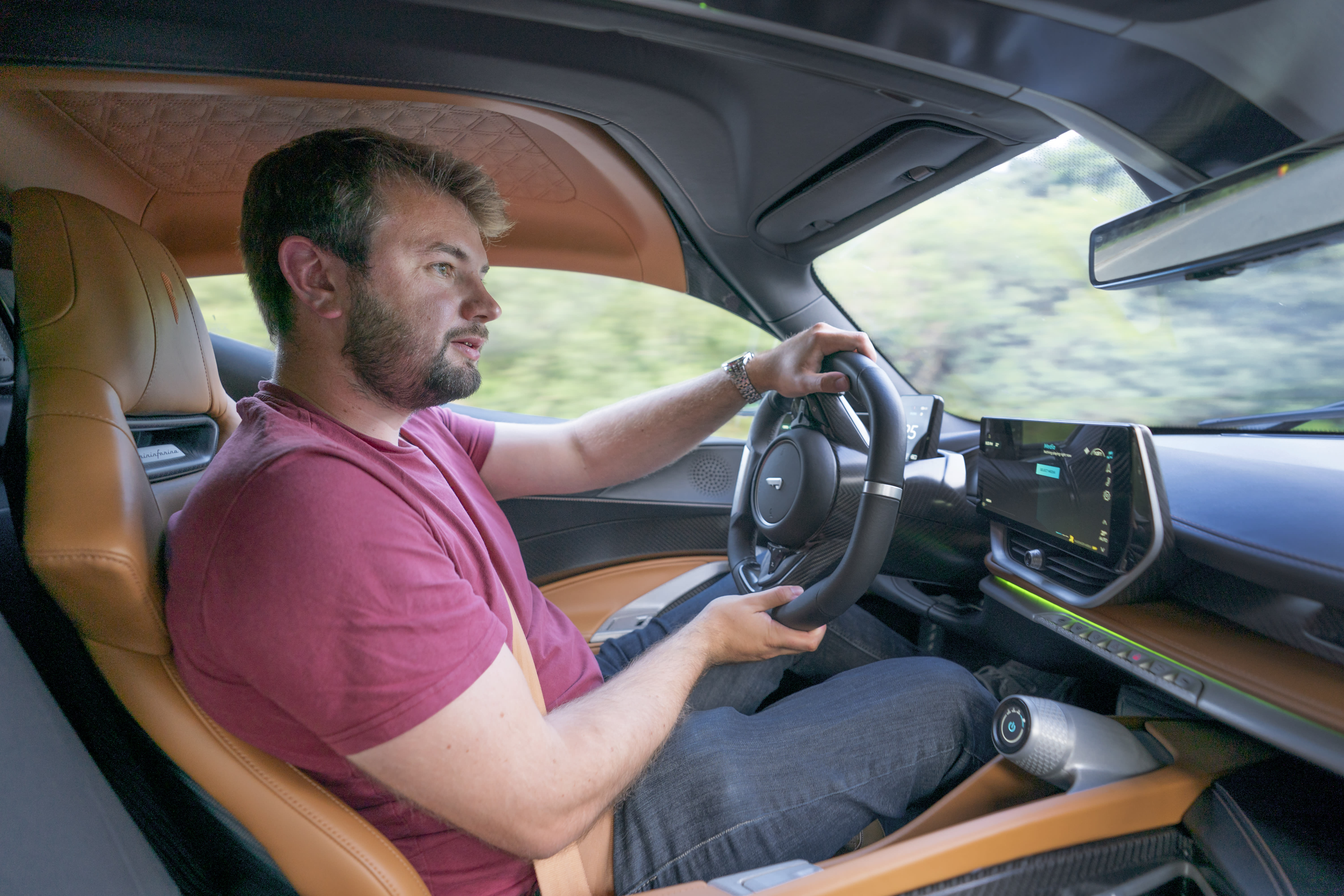


.jpg)

















